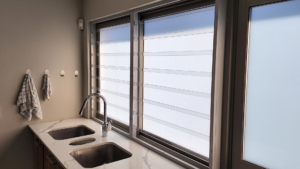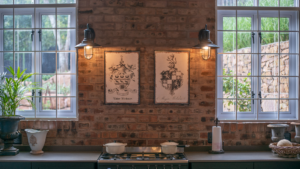Door locks play an essential role in your home’s security. The maintenance of these door locks is something that we might overlook, but it is crucial to do so to prolong their lifespan.
Door locks play an essential role in keeping your home, your family, and your valuables safe. They also come in various types, and these include.
Knob Locks
Knob locks are one of the most popular types of door locks used for internal doors; however, they are not recommended for external use as they do not have significant security benefits. You could, however, use them along with deadbolt locks for greater protection. Doorknob locks contain a locking mechanism that is found in the doorknob.
Padlocks
The simplest type of door locks are padlocks, as they are portable and are made with a shouldered shackle. The shackle is closed with the use of the locking mechanism. The locking mechanism ensures that it becomes more difficult to remove the shackle from the hasp or chain. Padlocks also have different models; however, they are available in two main categories, keyed padlocks and combination padlocks.
Deadbolt Lock
Deadbolts are the most common and most used type of door locks, especially in residential properties. Deadbolts can be opened using a knob or key, so they do not require a spring. These locks contain a locking mechanism that makes it difficult for anyone to forcibly gain entry. They are available in three different types: single cylinder, double cylinder, and lockable thumbturn deadbolts.
Mortise Locks
These door locks are the most powerful, so they are mainly used for commercial doors. Mortise locks include intricate hardware mounted in the door, and then a screw is used to keep the lock in place. A cam is also used to actuate the lock’s hardware.
Ways to Preserve Your Door Locks
Doors locks, like any other mechanical device, need to be appropriately maintained. We might do things that will lead to door locks failing to operate or breaking completely. To avoid these issues, it is essential to take some maintenance measures sooner to improve their performance, and it might reduce the money you will need to pay for repairs. The tips offered below will assist you in maintaining your door locks properly.
- Clean your door locks properly
Quite a lot of time is spent ensuring that our homes are clean. The same care that we take for our homes should apply to door locks. Door locks are exposed to different things throughout the day, such as dust, grime and dirt. All these things could lead to the door getting jammed as all the particles they are exposed to will lead to buildups.
When door locks become jammed, it is not immediate. The jamming process is gradual, but the impact of the jammed lock is relatively quick. Therefore to avoid being locked out of your home, it is necessary to regularly clean your door locks. The recommended time you should take to clean your door locks is at least once every three months so that there isn’t too much build up.
- Lubricate the inside of the lock annually
When we think about door lock maintenance, we might only focus on the outside of the lock and keeping it clean. However, you should prioritise this maintenance for the inside of the lock. Cleaning the inside of a door is not as difficult as you might imagine, and it is also a quick process. Lubricating the inside of your door locks can be done using dry or graphite lubricants, as these work best. They are also the easiest to apply.
Spray a small amount of the lubricant of your choice into the keyway. When you have sprayed the lubricant inside the lock, you should insert a key into the lock and move it in and out. To ensure that the inside of the lock is cleaner for longer, then ensure that every time you take out the key, you wipe any debris off the key before you put it back in the lock. Ensure that inside of the lock is lubricated at least once every year. One of the best methods that you can use to thoroughly lubricate your locks is by removing the lock entirely from the door and lubricate the bolt and latch as well.
- Make use of proper cleaning materials
When conducting any type of work, it is essential to use the right tools for the job. The same also applies when it comes to cleaning door locks. Therefore, you should be mindful of the materials that you use when you are cleaning. For example, lubricants ensure that you effectively clean your door locks. However, using petroleum-based lubricants for cleaning doorknobs might not be able to do the job correctly. The possible dangers of using the wrong type of cleaning materials can lead to your door locks experiencing more problems. Therefore, you should better understand the materials you use to ensure that you are using the suitable materials for the task.
- Do not use force
When we think about how we handle most of our household items, we tend to use a lot of care. This is how we are to handle door locks and extend their use and ensure that they last longer. Though door locks are robust, it does not mean that we must use unnecessary force when we are handling them. Some people use excessive force for door locks without even realizing it, such as slamming the doors or banging in the lock. Though these actions might seem completely harmless, the damage will eventually build until it leads to the door breaking.
- Make copies of the keys
One of the things that might lead to your door locks breaking quicker is the key itself. Keys were not designed to last as long as door locks, so you need to ensure that you replace them frequently. It is recommended to replace the keys by duplicating them as soon as you begin to see that they are wearing out. However, the greatest issue with duplicating keys is that the duplicates can never be exactly like the original. So the more duplicates you make, the more they will differ from the original. Therefore, you should set aside one original key that you will always use to create copies.
To reduce any confusion that might occur, you should keep the original key in a safe place to have a backup when the original key wears out, and you need another copy.
Speaking of locks, we discuss Slam Lock vs. Dead Lock Security Gates – What’s the Difference?



